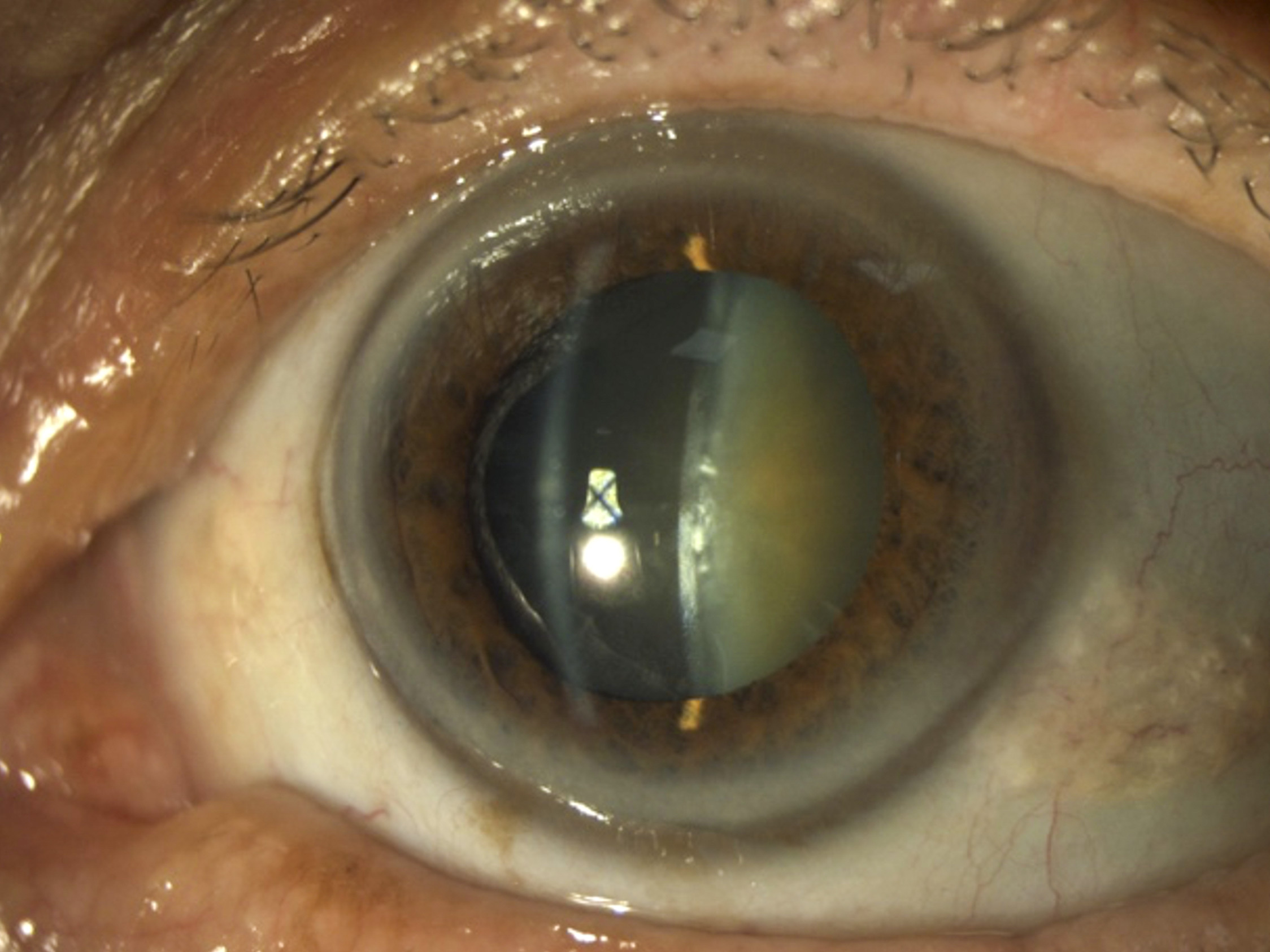Picture quiz

Related content
A 65-year-old man complains of gradually decreasing vision for the last two years. He has always been myopic, but recently his myopia has got worse, and he has had to change his spectacles twice in twelve months. He has been a heavy smoker for many years and has type 2 diabetes and hypertension. He is taking tablets for diabetes and raised blood pressure but is not on any other treatment. There is no other past ocular or medical history. His unaided vision is 6/60, but (in the eye in the photo) this improves to 6/18 with a pinhole.
Question 1
Why is his myopia getting worse? (Select one)
a.His eye is growing longer
b.He has keratoconus
c.He has a nuclear cataract
Question 2
What do you think has caused/exacerbated this problem? (Select all that are correct)
a.Diabetes
b.Smoking
c.Steroid treatment
d.Uveitis
e.Glaucoma
Question 3
How would you help this man improve his vision?
a.Encourage him to stop smoking and improve the management of his diabetes
b.Prescribe new, stronger spectacles
c.Refer for cataract surgery
ANSWERS
1. c. Progressive nuclear sclerosis increases the refractive index of the lens in a fairly regular symmetrical fashion, producing a myopic shift. In cortical lens opacities, the changes in refractive index will be more localised, so the refractive changes would tend to be towards astigmatism. As he is 65 years old, the eye is no longer growing. We would also not expect there to be progressive keratoconus at this age.
2. a and b. Diabetes and smoking are known risk factors for cataract. Smoking is particularly associated with nuclear cataract, as seen in this photo. Steroids and uveitis can cause cataract, however, he is not on steroids at present, and there is no evidence or history of previous uveitis. Glaucoma has no direct causative relationship with cataract formation, and there is no history of this.
3. c. To improve his presenting vision from the current level of 6/60, a cataract operation is likely to be the best option. Some benefit might be gained from new spectacles, but this would be his third pair in the past year, so this would only be a reasonable option if he was very unwell and unlikely to live much longer, or if he was unwilling or unable to undergo cataract surgery safely (or has to wait more than 6 months for surgery). Stopping smoking and improving his diabetes management would not reverse the cataract changes he already has in that eye, but may slow cataract progression in the other eye, and would have wider health benefits for him.
